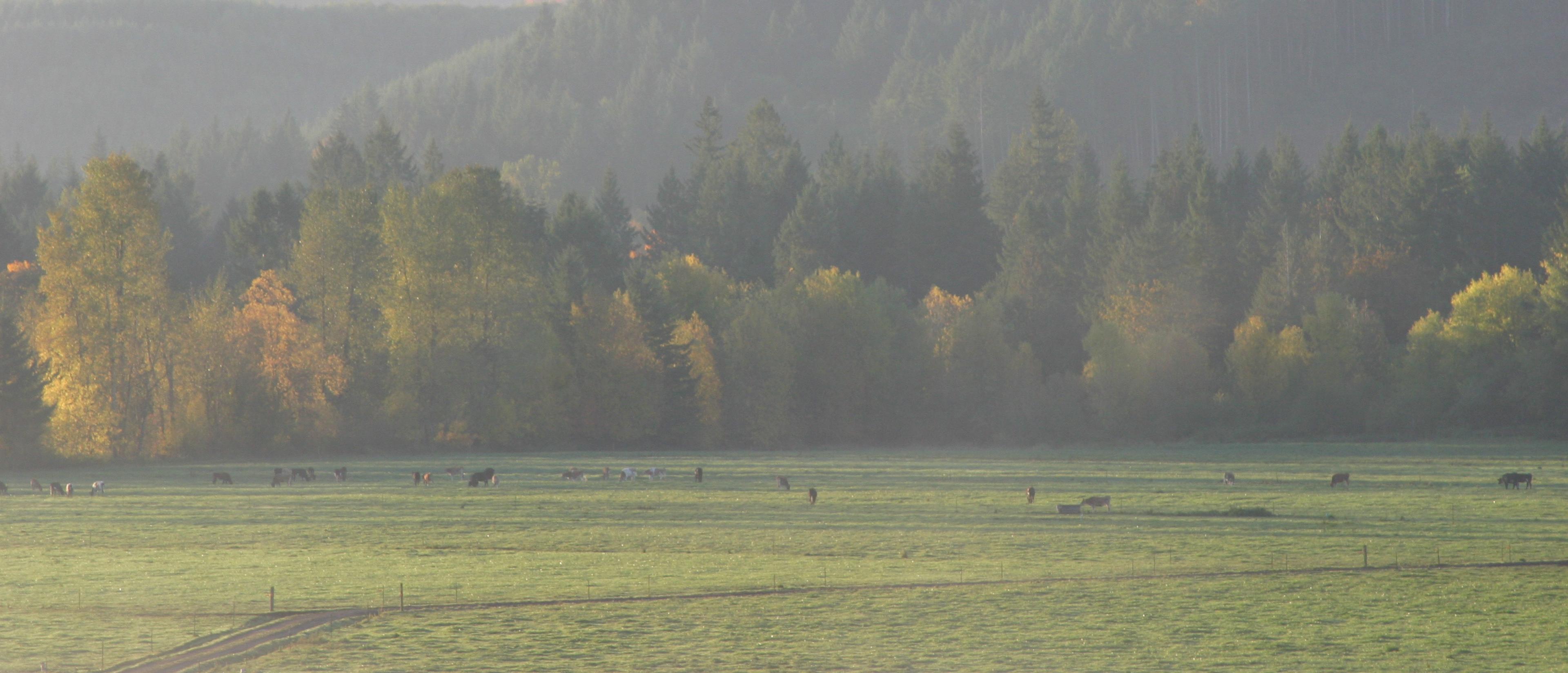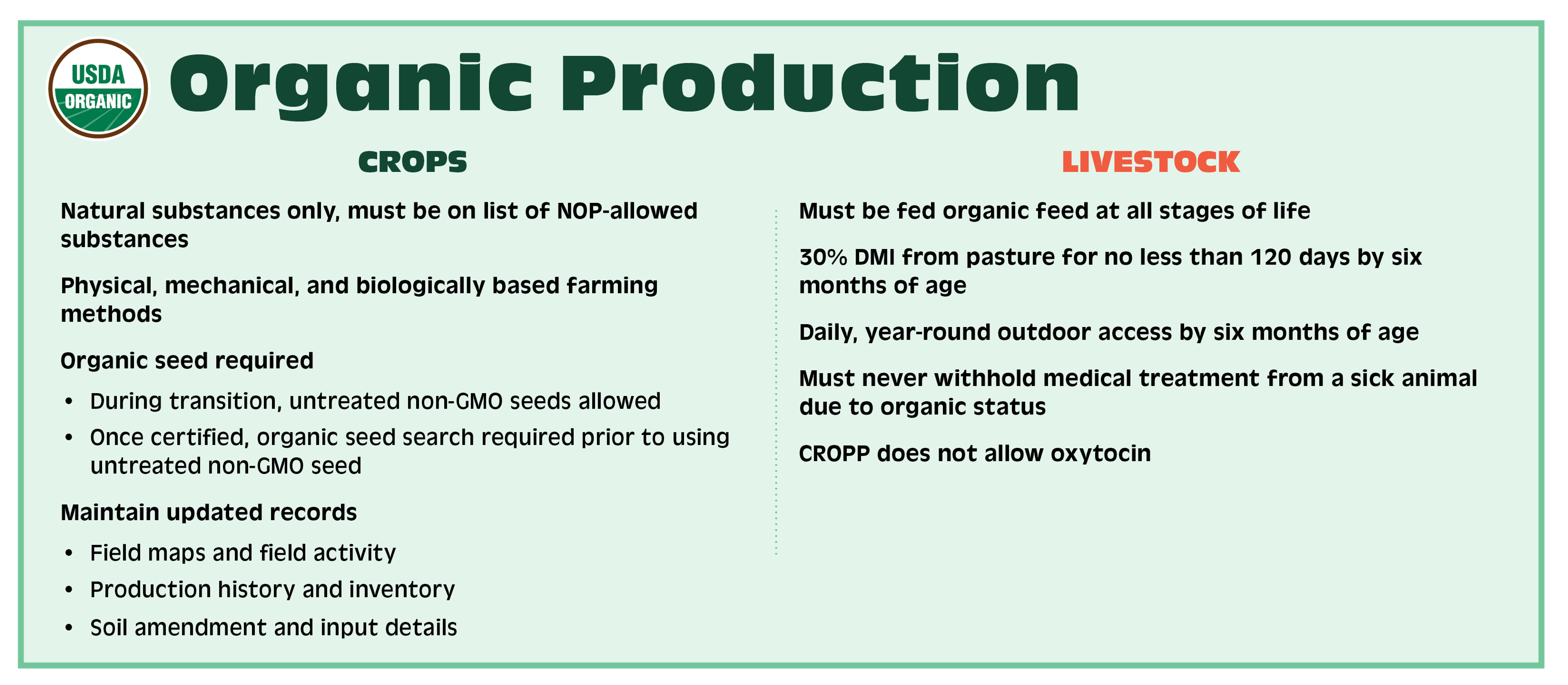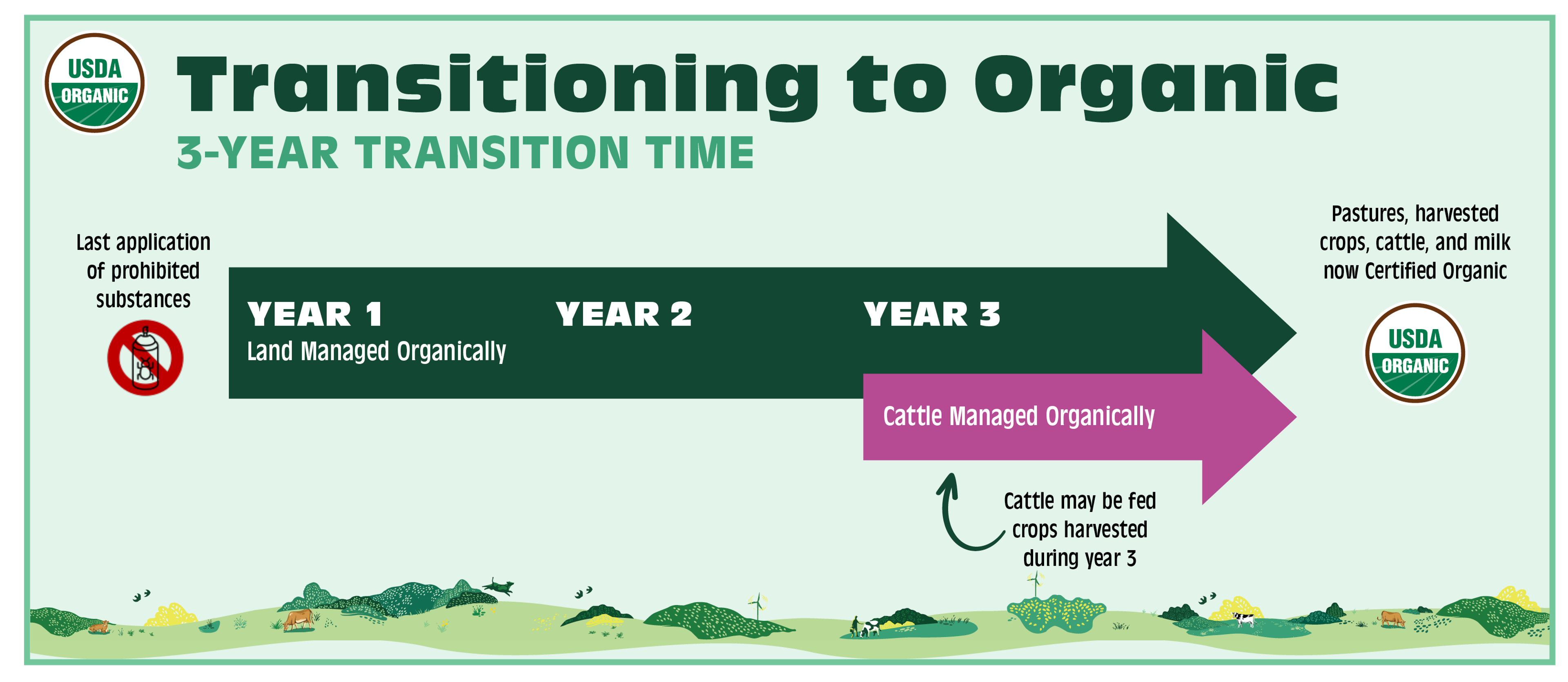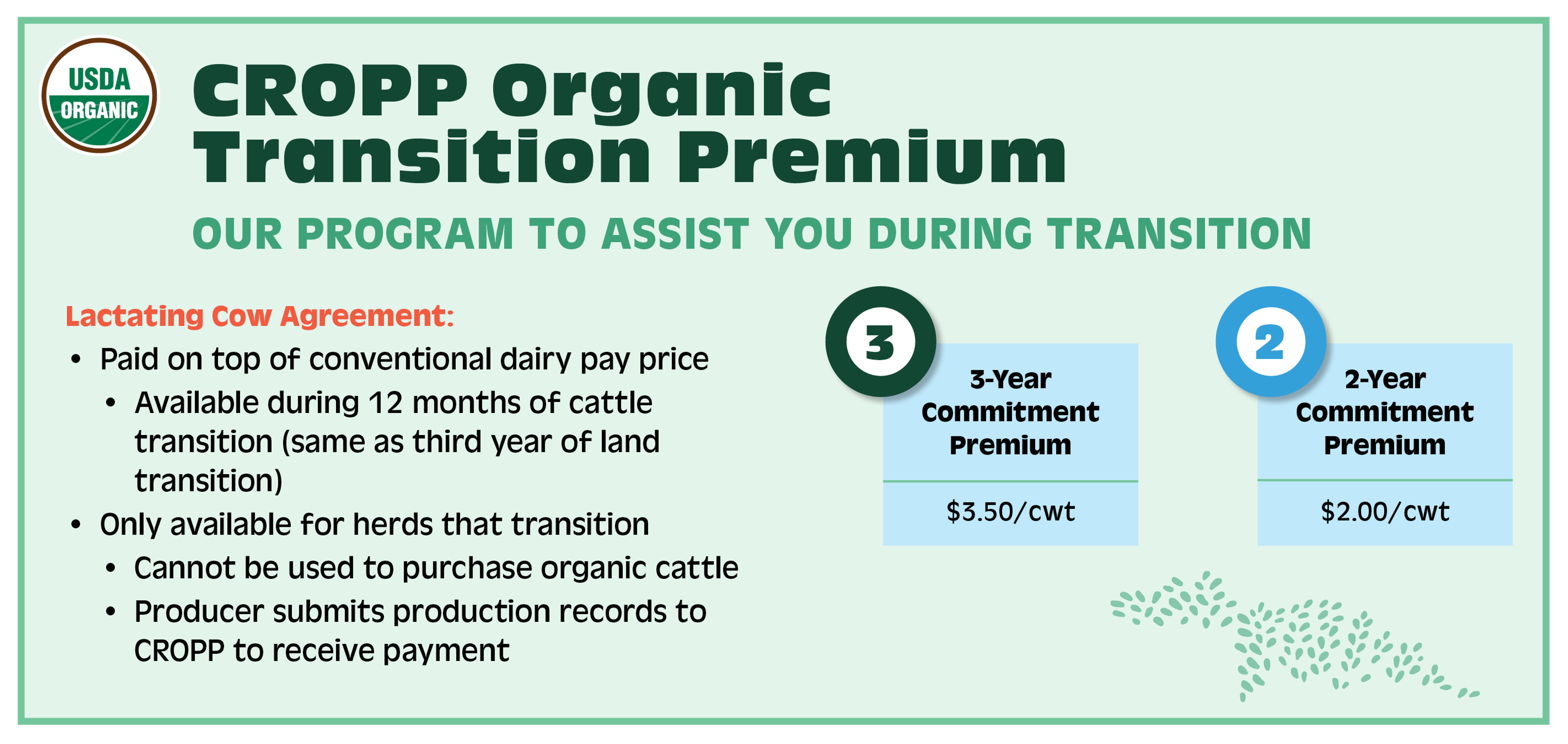
Organic Transition
Every CROPP Cooperative/Organic Valley farm must be organically certified. Organic farmers are required to follow National Organic Program (NOP) rules for their crops, livestock, and livestock products to be sold or marketed as organic. Prior to selling your products, your operation must be issued an organic certificate through an accredited USDA certifying agent. If you are thinking about transitioning to organic production, here are a few things to consider.
Before You Begin
Decide if your farm is a good candidate for organic production. The USDA National Organic Program website can help you decide if organic farming is right for you and provide more information on how to become a certified organic farm.
If you decide organic production is right for you and your farm, decide if CROPP Cooperative/Organic Valley membership is right for you. Visit our Farm With Us page to learn more, or connect with us by calling our Farmer Hotline at 1-888-809-9297 or farmerhotline@organicvalley.coop.

Select an Organic Certification Agency
For a farm to market or sell agricultural products as organic, the operation must be issued an organic certificate by an accredited USDA certification agent. The purpose of certification is to verify that all farms meet the production requirements of the standards.
Building a relationship with your certifier is crucial to your success. It is encouraged that you contact an agent early in the certification process.

Transitioning Takes Time
Transitioning to organic production can take up to three years, and there are many new things to learn. Remember that your certifier can guide you through the process of creating and submitting your organic system plan and answer any questions related to getting certified. Allow sufficient time to complete all the required steps for application and inspection to receive your certification.
If you have additional questions, contact our certification specialist by calling our Farmer Hotline at 888-809-9297.
Our Organic Dairy Transition Premium Program
CROPP Cooperative/Organic Valley offers an organic transition premium to assist dairy farms with additional expenses during the final 12 months of transition. The premium paid per hundredweight is based on the transitioning farm committing to a minimum of two or three years of membership with the cooperative.

